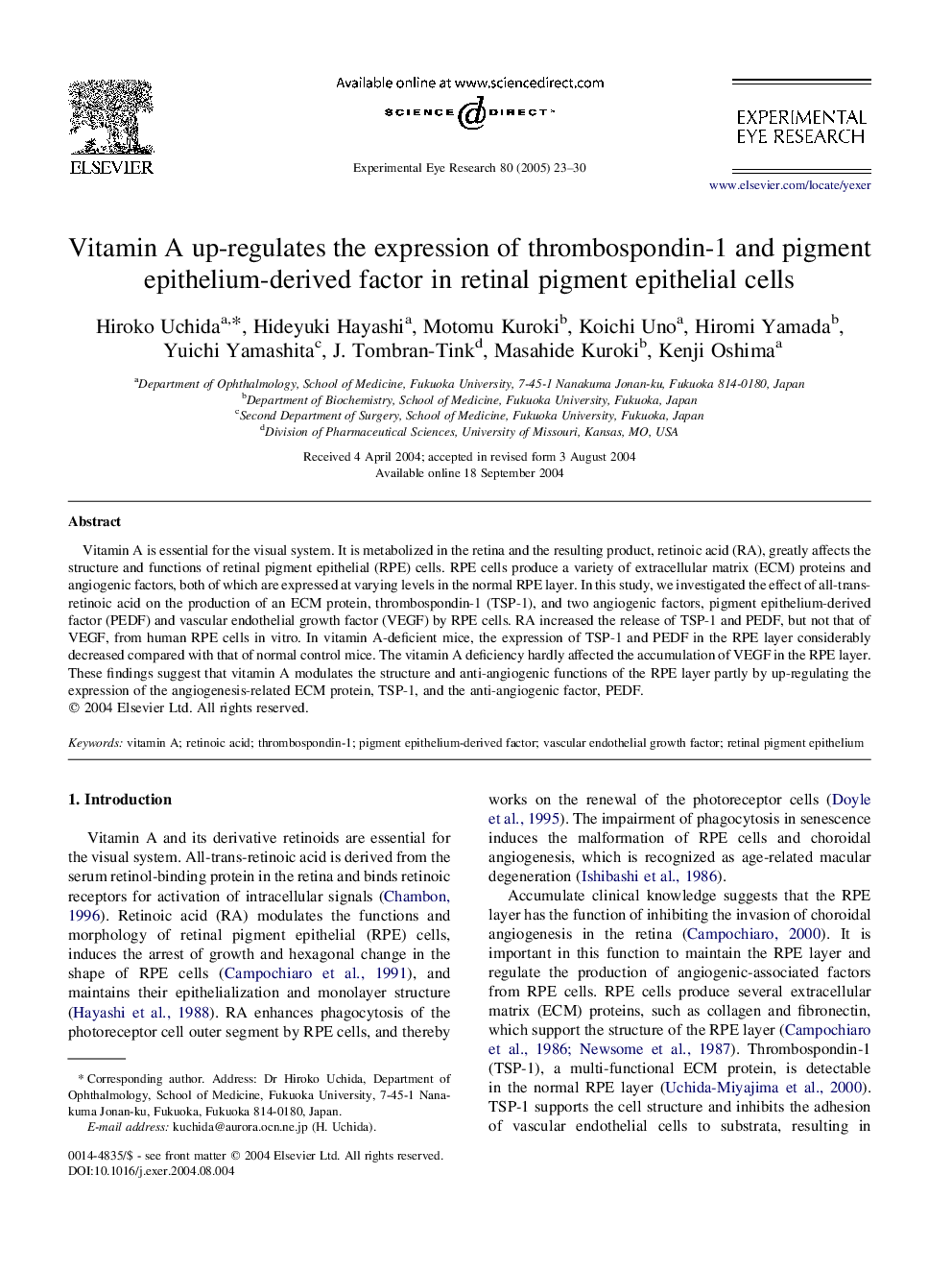| Article ID | Journal | Published Year | Pages | File Type |
|---|---|---|---|---|
| 9341583 | Experimental Eye Research | 2005 | 8 Pages |
Abstract
Vitamin A is essential for the visual system. It is metabolized in the retina and the resulting product, retinoic acid (RA), greatly affects the structure and functions of retinal pigment epithelial (RPE) cells. RPE cells produce a variety of extracellular matrix (ECM) proteins and angiogenic factors, both of which are expressed at varying levels in the normal RPE layer. In this study, we investigated the effect of all-trans-retinoic acid on the production of an ECM protein, thrombospondin-1 (TSP-1), and two angiogenic factors, pigment epithelium-derived factor (PEDF) and vascular endothelial growth factor (VEGF) by RPE cells. RA increased the release of TSP-1 and PEDF, but not that of VEGF, from human RPE cells in vitro. In vitamin A-deficient mice, the expression of TSP-1 and PEDF in the RPE layer considerably decreased compared with that of normal control mice. The vitamin A deficiency hardly affected the accumulation of VEGF in the RPE layer. These findings suggest that vitamin A modulates the structure and anti-angiogenic functions of the RPE layer partly by up-regulating the expression of the angiogenesis-related ECM protein, TSP-1, and the anti-angiogenic factor, PEDF.
Keywords
Related Topics
Life Sciences
Immunology and Microbiology
Immunology and Microbiology (General)
Authors
Hiroko Uchida, Hideyuki Hayashi, Motomu Kuroki, Koichi Uno, Hiromi Yamada, Yuichi Yamashita, J. Tombran-Tink, Masahide Kuroki, Kenji Oshima,
